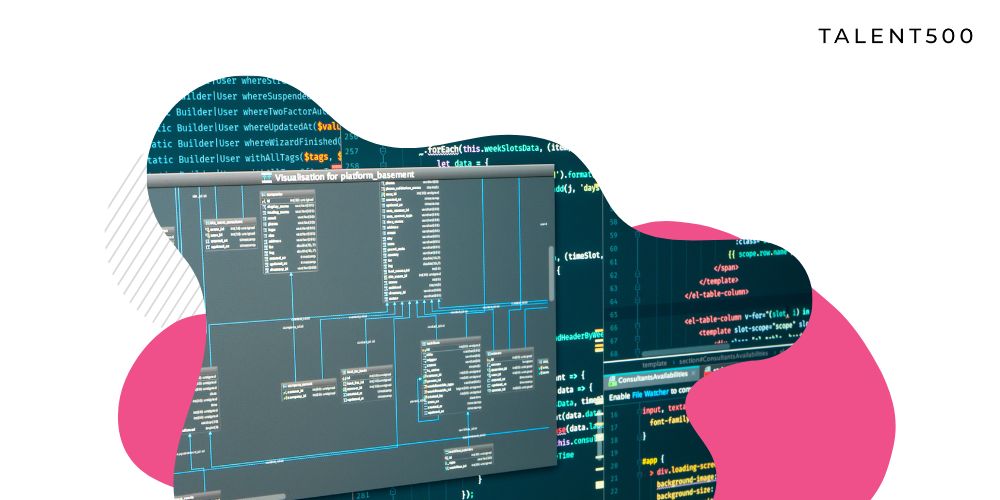Backend developers are responsible for building the server side of the application. Compared to frontend development, backend development is more demanding in terms of multi-functionality and complexity, yet developing the backend infrastructure for applications is becoming simpler. This is because of the availability of new web development frameworks.
Any development project can be divided into frontend and backend development. With many frameworks available for backend development, which one will you choose?
This article lists the best backend frameworks for web development in 2022.
1. Django
For Python developers, one of the best backend frameworks for application development is Django. You can build database-driven, complex, high-performance websites using Django with resource optimization.
Maintaining all the core functionalities of Python, this framework is known to be very scalable for enterprise-level applications. Its code reusability makes it easier for developers to adjust according to the increasing traffic of the website as you can balance the traffic load easily. Another factor that works in favor of Django is its SEO-oriented architecture. Search engine optimization is an essential aspect of web development, and any backend framework should have options to set SEO elements. When you use Django for backend development, you do not have to worry about SEO-friendliness as you can easily maintain Django-based applications via URLs rather than IP addresses.
The Python community is large with over 10 million members, which is why Django has extensive community support. Any backend developer can take a no-code approach, as there are prebuilt packages available that developers can use to integrate functionality in Django. It gives it the versatility to develop database-driven websites with diverse functions.
2. Spring boot
Java is one of the most widely used backend development programming languages. It is also an essential skill for backend developers. Spring framework is what most Java developers have used for backend development since 2002 when it was first released. Most enterprises prefer building production-grade standalone applications using Spring framework and Spring Boot.
Modern backend development is shifting towards Spring Boot because it significantly minimizes the need for various configurations, unlike Spring framework. It is an excellent backend framework with built-in functionalities like caching, configuration management, transaction management, monitoring, and security. Additional frameworks work with Spring Boot, such as Spring Cloud and Spring Security.
3. Express.js
Express.js is a backend framework that is built on Node.js. You can use this framework for @web and mobile applications if you know JavaScript. However, Express.js is not a no-code platform like other modern backend development frameworks. You need to have good command over the JavaScript development programming language to start building with it.
However, because of its incredible performance, Express.js is used to run the most prominent applications on the internet, such as Uber and MySpace. Express.js comes with prebuilt templates that help you create web pages faster, and it has the most standard functionalities of Node.js. Debugging is much more efficient in Express.js because it can identify the specific part of the code where the bug is located. It shares the scalability of Django, enabling backend developers to expand infrastructure as their application size grows. Furthermore, you can use the same programming language (JavaScript) for backend and frontend development.
If, as a backend developer, you are more comfortable with JavaScript, this is the perfect backend framework for you to start building scalable applications.
4. Laravel
PHP is used more than any other programming language for backend development. Almost 77% of websites use PHP as a server-side scripting language. Any backend developer must know PHP, and to build a backend framework faster, they can use Laravel.
It’s an open-source backend framework that is designed explicitly for MVC architecture. Most PHP developers use Laravel for symphony-based web application development. There are several reasons to choose this PHP backend framework. Firstly, it offers unmatched security features like the Bcrypt Hashing Algorithm for creating passwords. Second, you can use hundreds of built-in templates to create layouts and content in Laravel. Also, other than PHP, this web development framework supports CSS and JS code. As a PHP developer, if you are looking for a backend framework for complex projects, then you can trust Laravel. However, this framework might be unsuitable for beginners since it’s too complicated to manage for simpler tasks. For instance, for simple form validation, you need to write separate functions.
Conclusion
The requirements from backend development are increasing, but the availability of modern backend frameworks simplifies the development. All the backend development frameworks listed here offer great functionality and features to build complex applications. Choose the right one depending on the server environment, the programming language of choice, and your understanding of the project requirements.
Talent500 is a widely used remote team-building platform which is helping Fortune 500 companies and fast-growing start-ups recruit tech talent. Sign up here to join the elite pool of backend developers and get discovered by the biggest tech companies.


